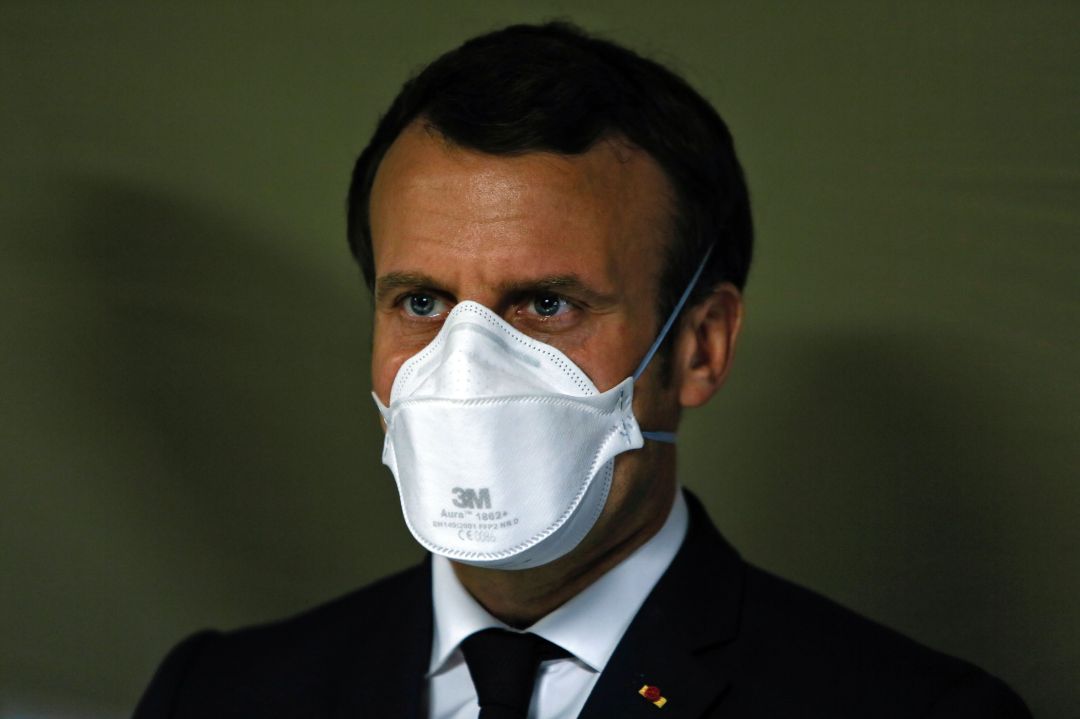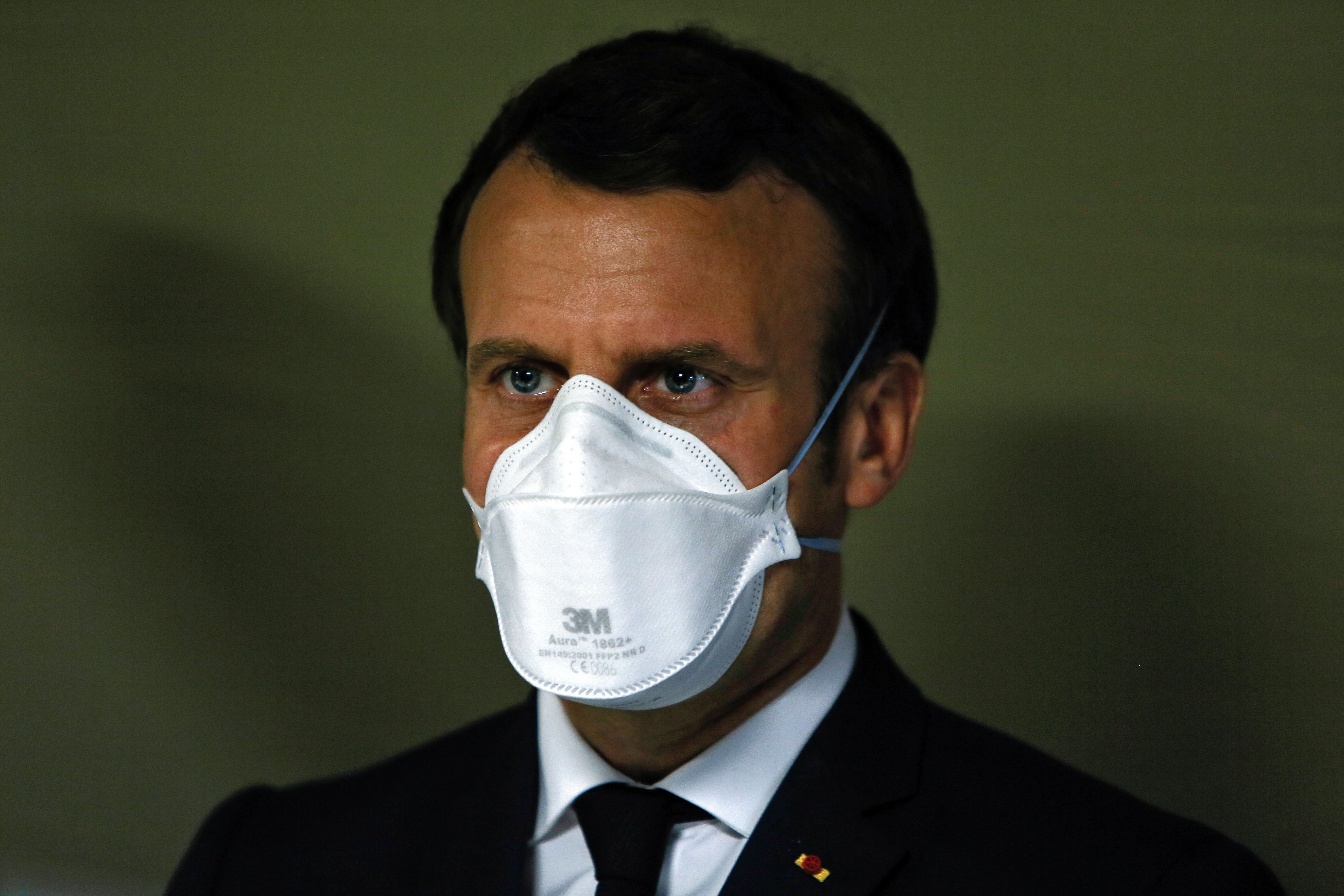On Saturday night France’s Prime Minister spoke to the French people flanked by the Health Minister, the Director General of Health (DGS) and three epidemiologists, to reassure the public that the government would be more transparent about the spread of coronavirus. Despite President Macron’s increasing media appearances in the ‘war on corona’ a 25 March opinion poll showed 90 per cent of the French public are anxious, 39 points more than on 11 March before the lockdown. Although 64 per cent claimed their morale was holding up, 56 per cent said they had lost faith in the executive’s management of the crisis.
This is very different to a poll on 28 March on the British government’s handling of the crisis, which showed it had a 72 per cent approval rating. But all governments have good and bad moments in a crisis and France is currently a week ahead of Britain in the epidemic’s curve. Nevertheless, a primary fault currently laid at the feet of the French government is confusion.
Napoleon thought that ‘in war, moral power is to physical as three parts out of four’
One of the areas where confusion is provoking anxiety, as I wrote in The Spectator last Friday, is in the statistics presented to the French people every evening at 7.15pm by the Director General of Health. Although it has not created a media storm (as it would in the ‘Anglo-Saxon’ media) French news outlets and social media have cottoned on to the fact that France’s daily corona death toll is being under-reported. The revelation happened last week when the Director General of Health emphasised that France’s death toll only included ‘deaths in hospital’, and so excluded France’s 10,000 retirement homes, nursing homes, and the large numbers of elderly cared for at home. The Prime Minister explained, via the Director General, that they hoped to give the ‘real’ total deaths daily from Monday onwards, which would include those in retirement homes, but not in individual homes.
This move is both praiseworthy and risky. Praiseworthy because there is no international standardised method for attributing or recording deaths. Risky because the death toll could suddenly jump and provoke further anxiety when public opinion is already questioning the government’s management of the crisis. French media comparisons currently veer from the horror of Italy and Spain, to the apparent competence of Germany. French hospitals are coping so far by shipping patients around the country to less affected areas. The war-front is holding. But can the home-front?
In the end the death toll released on Monday continued to record only hospital deaths. But the jump in even that figure was the highest yet recorded (418) taking the overall French total deaths to 3,024. Will the French government still go ahead with its promise to include deaths outside the hospital sector, as the UK plans to do this week? To do so would be a serious crash test of the solidity of French morale.
Napoleon thought that ‘in war, moral power is to physical as three parts out of four’. In 1917, after three years of war, French morale was sapped. The April Nivelle Offensive to break the German lines failed miserably with terrible casualties. That in turn provoked widespread mutinies in the French army and strikes at home. Statistics of all sorts from casualties, to war production and morale were terrible. Why mention these events in the context of the coronavirus epidemic? Because it was at this low point in French national morale in November 1917 that Georges Clemenceau was appointed prime minister by his arch-rival President Raymond Poincaré to bolster morale and redouble the war effort. And it is Georges Clemenceau that President Macron’s advisors have been comparing their boss to. ‘He is Clemenceau in the trenches’, they claim.
This is unwise. Other than the age difference (Clemenceau was 76 in 1917), ‘the Tiger’ had considerable political experience and more importantly, he was not associated with the war’s previous poor management, whereas Macron has been at the helm for nearly three years. Macron’s poll ratings have risen since the epidemic, but from a very low base. At the end of February they stood at a near historical low of 32 per cent and in yesterday’s poll had climbed to 43 per cent. But confidence in the executive is in daily decline with only 44 per cent saying they have confidence in the government to tackle the epidemic efficiently.
Yesterday morning interviewed on a major French radio channel Marine Le Pen, leader of the right wing Rassemblement National, castigated the executive for ‘lying’ to the French people on everything from masks to tests. National unity, she said, could not be sealed on the basis of lies. Whatever is thought of Le Pen, her party has the largest electoral support in France. If the death toll from coronavirus rises significantly this week and the jaundiced French perception of the government’s handling of the crisis does not recover, President Macron may come to regret the comparisons with France’s great war-time leader.








Comments